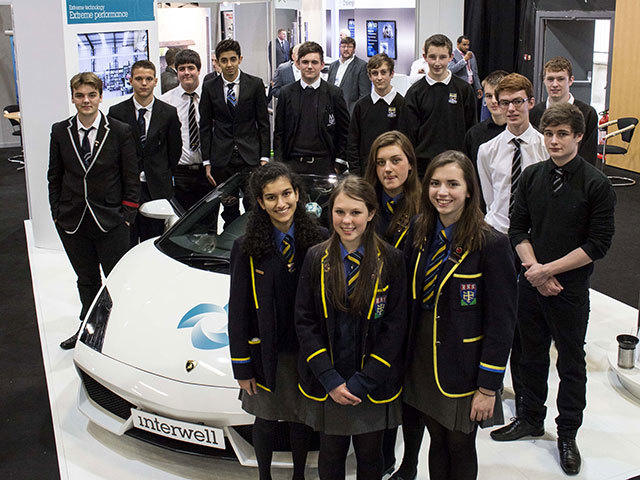
Big Oil has always found it hard to communicate with the public. The relationship is stand-offish and most of us are only interested in the cost of filling the family car and warming the home.
If prices go up, resentment builds; everyone loves to hate the oil industry.
And yet it is one of the biggest employers of talent in Britain; with upstream accounting for about 450,000 jobs.
It is desperate to replenish its talent pool in order to fill the vacuum left by people retiring; often early by the standard of most other industries and usually very well off.
That hunt has turned into a struggle and it has become apparent that the industry is failing to persuade young people especially to take an interest.
It turns out that a big reason for the failure is that the companies seem not to have a clue how to get their message across.
Might asking the target audience for its ideas work?
A small group of smart industry minds in Aberdeen decided to give it a try.
The result was that, last autumn, nine senior schools in Aberdeen city and shire took part in a contest designed to get 14 to 16-year-olds to generate ideas as to how the North Sea oil and gas industry could engage with their generation.
Teams of three and four from Aboyne, Harlaw, Banff, Bridge of Don, Ellon, Harlaw, Mearns and St Machar academies, also a gaggle from St Margaret’s School, pitched their ideas to the Society of Petroleum Engineers and International Coiled Tubing Association in Aberdeen.
The final, which was won by St Margaret’s, took place at an SPE/ICoTA conference last year.
What came out of this competition was an eye-opener; a slap in the face to an industry that thought it knew it all.
What the students said
Here’s a selection of thoughts, ideas and actions offered.
Maybe the most important common thread that runs through every one of the presentations is the need for companies to use social media in a big way, especially Facebook, tweets, apps and even YouTube.
Another is the level of ignorance and lack of interest about the oil industry by the target audience, mostly 14 to 16 years of age.
And a third is the dismissive way in which most of the young students were treated by most of the companies approached.
The St Margaret’s team even name names in their extensive preparations. That list makes shocking reading, though they politely avoided reference to it in their YouTube presentation.
BRIDGE OF DON
This team spotted the lack of women in the UK industry, the current heavy level of investment, huge array of job opportunities and importance of technology.
They polled fellow pupils about what they thought were the most important attributes of jobs in the industry. Some 33% cited enjoyment, 31% said high salaries and 13% selected job security.
They looked at current oil industry promotional material and came to the view that it was samey, didn’t stand out from the crowd and was boring. In short, they have to do a far better job.
The team developed a campaign based around three posters and a jobs leaflet that highlighted the huge variety of opportunities, including jobs for chefs and nurses.
HARLAW
Fellow students surveyed by this team said they wanted fun videos stuffed with attractive facts; they wanted role models.
“A lot of people assume you have to be an engineer; not true,” said one of Harlaw’s presenters. “You can be in financial, IT, be a lawyer, many kinds of science, technology … the industry covers just about everything.
BANFF
One strand covered by this team was the recruitment strategies pursued by companies and support organisations.
They said targets included Ace Winches, Offshore Petroleum Industry Training organisation, Subsea 7, Subsea UK, Institute of Mechanical Engineers and Taqa.
They had hoped to make Ace a centrepiece and tried to arrange meetings with the company, which is a star in their part of the north-east.
“As a local company, we thought they might provide insight,” said one of the team on Banff’s YouTube video. “We are currently awaiting a response from this company.”
ST MACHAR
At the heart of this team’s research was a prepared questionnaire from which pie charts were prepared from the results of six questions.
What do you plan on doing after school? 93% said university; 7% work
Do you know anyone in the oil industry? 59% yes: 41% no
Is the income important? 60% said yes
Would you consider a career in oil & gas? 67% said no
Would you like to travel to other part of the world? 78% said yes
Would you like to work offshore? 58% said no
ST MARGARET’S
The winning presentation, UncOIL, was superb, including a 10-minute YouTube video. It was stuffed with excellent research, sparky ideas and fun. Go find it on the web; it has real pazzazz.
And, as reported in Energy and on Energy Voice at the time they won, they achieved this in the face of oil company indifference.
The team does not shrink from saying so in their presentation.
“Most companies we contacted refused to answer questions over the phone and wanted e-mails sent instead.
“This made it hard for us to get the information we needed in a short space of time, although we did get one e-mail from Shell that told us nothing of what we wanted to know.”
Twisting the knife further, they said Google left the oil industry standing with its web approach to attract talent.
Not dissuaded by what they encountered, this team came up with a fantastic array of ideas for the North Sea industry to engage. Their presentation should be a must-see for every company’s HR, marketing and PR departments too; oh, and the bosses.
